Each generation’s favorite classic cars
Want to know something kids today can’t get enough of? Dogs. Especially really cute ones with sad eyes. Gen-Zers are also into—get this—hot drinks on cold days. Some like cilantro, but others hate it. Spend enough time on TikTok and you’ll get the sense that many teens—gosh, this is so weird—crave the approval and affection of others.
OK, I’ll stop. My point, in case all that wasn’t obvious enough, is that lots of people tend to be into lots of the same stuff, regardless of age. The ballyhooed “generation gap,” although grounded in certain realities of our fast-changing world, is largely a figment of marketers’ imagination.
Hagerty’s demographic data tell a similar story. When someone calls us about insurance on a particular car, we ask for basic details like their age. Since we get thousands upon thousands of these calls every year, we have a pretty solid sense of what enthusiasts in each age group are into. Turns out that whether the caller is 16 or 101 (actual ages of our youngest and oldest callers) there’s a really good chance they’re asking about a Chevrolet Corvette or Ford Mustang.
Of course, there are differences, and we’ll get into some of them below. In the interest of presenting a fuller picture, I’ve shown two metrics for each generation—first, the vehicles that age group calls about the most, and second, the cars for which it represents the highest percentage of interest. The latter metric helps us spot trends early on but it also, in isolation, can be very deceiving. For instance, looking solely at generational share, you’ll see that Gen-Z represents 44 percent of insurance quotes for the 1989–1994 Nissan Laurel. Woah! Before you start filling warehouses with the JDM sedans, though, perhaps I should tell you the raw total of calls that represents: 24. In contrast, some five thousand kiddos called us about Mustangs. (Note: In the interest of avoiding such misrepresentations, I have in the sections below excluded vehicles for which we received fewer than 100 calls from a particular age group.)
Read on to see what each generation craves, but don’t forget the key takeaway: What we share in common far outweighs what separates us.
Pre-baby boomer (1920–1945)
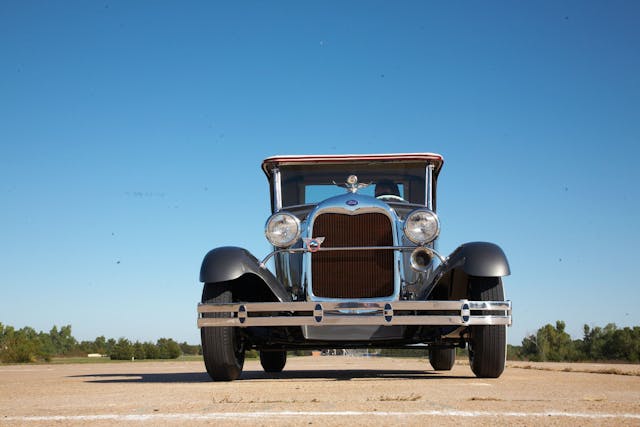
Most-called-about vehicle: 1928–1931 Ford Model A
Highest share of calls: 1950-1953 MG TD
These shouldn’t surprise anyone. Not only are both cars, um, old, but they’re also the two archetypes of the attainable classics favored by younger generations. In the Ford Model A, we have a passenger car that, due to its ubiquity, charisma, and association with a time and a place, found its way into enthusiasts’ hearts. The MG TD, meanwhile, was the sports car that made Americans love sports cars—every Corvette, Miata, and Boxster produced owes it a small debt.
On that note, we all owe a debt to these older collectors. They founded the car-collector hobby and, to a large extent, created car culture as we know it in this country. The greasers who popularized hot rodding, the tweed-wearing East Coasters who brought over British roadsters, our pantheon of American racing greats, including Phil Hill, Carroll Shelby, Dan Gurney, and Mario Andretti—all of them hail from the generation born before 1945, and all continue to resonate today.
This generation also continues to throw a lot of weight around the collector car market. Although its ranks, sadly, are thinning, pre-baby boomers are still more numerous in our insurance quote data than Gen-Zers, and they’re overrepresented among the most expensive vehicles.
Baby boomers (1946–1964)
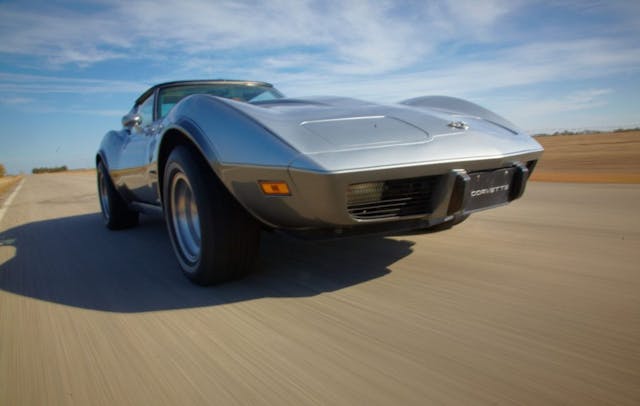
Most called-about vehicle: 1972–1984 Chevrolet Corvette
Highest share of calls: 1969-1976 Triumph TR6
If you’re reading this article, based on our stats, you’re likely a baby boomer. For all the obsession with the growing youth contingent, baby boomers still represent the lion’s share of interest in cars: Nearly four out of every ten people who called Hagerty for a quote on insurance in the past year come from that generation. This is to a large extent a by-product of wealth—baby boomers control more than 50 percent of it in the United States, per the Federal Reserve—yet there’s no denying that the generation which came of age in the 1960s has a unique connection to the automobile.
When it comes to what these enthusiasts crave most, there’s no contest. It’s all about Corvette. The most-produced Vette, the 1972–1984 C3, naturally tops the list, but the C2, C4, and C5 all make the top ten.
What sets American baby boomer enthusiasts apart, however, is their fascination with British sports cars. The folks who grew up with The Beatles, the Rolling Stones, and The Who have a special relationship with the cars from that country. Four out of the ten cars for which Baby Boomers represent the highest share of insurance quotes are Brits, topped by the venerable Triumph TR6.
Generation-X (1965–1981)
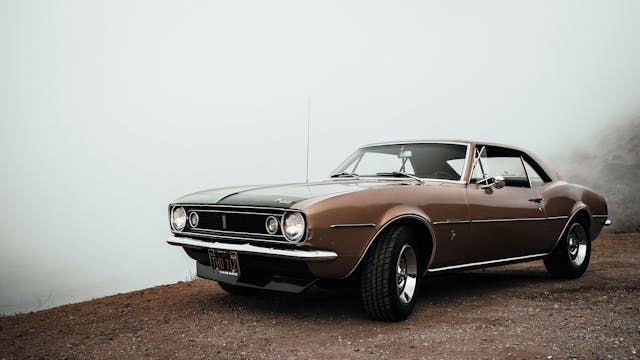
Most called-about vehicle: 1967–1969 Chevrolet Camaro
Highest share of calls: 1983–1990 Land Rover Defender
Gen-Xers are, in the near term, the most important age group for classic car values. That may sound odd given that they are commonly thought to be America’s smallest generation, sandwiched between baby boomers and their millennial children. Yet in terms of wealth and disposable income, Gen-Xers punch well above their weight. Most of these forty- and fifty-somethings are in their peak earning years, and many are finally getting the kids off their dole. As a result, the cars for which this age group is over-represented are gaining in value. It’s no surprise then, that classic SUVs—the hottest segment of the collector car market right in recent years—dominate the list of vehicles Gen-Xers favor compared to other generations.
Conversely, though, it is Gen-Xers who really start to bust conventions of what enthusiasts of a particular age “should” like. Look at the vehicles they call about most, and you essentially see cars from the same era as the one prized by baby boomers. Topping the list is the 1967–69 Camaro, a car that even the oldest Gen-Xers likely don’t remember seeing new, and one that Baby Boomers also like a whole lot.
Millennials (1982–1996)
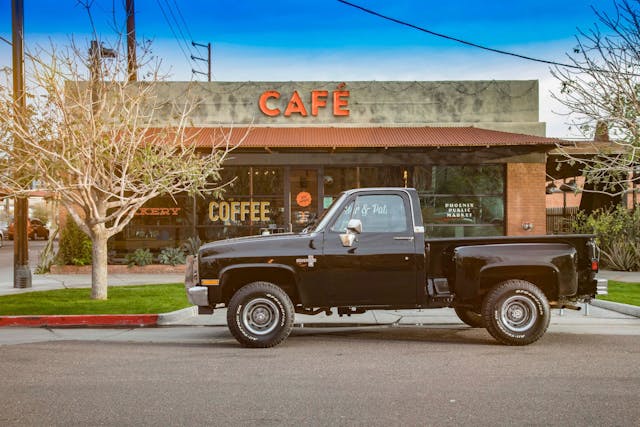
Most called-about vehicle: 1981-1987 Chevrolet C/K Series Pickup
Highest share of calls: 2002-2007 Mitsubishi Lancer/Evo
Time for some myth-busting. Millennials, the ones who grew up during the golden era of Japanese performance and were the core audience for the Fast and Furious films, are absolutely bonkers for American cars. The ten cars quoted most by this generation are all Fords and Chevys. Matter of fact, the Miata, the 3 Series, and the venerable Beetle are the only imports the crack Millennials top 25—otherwise, it’s wall-to-wall Detroit.
The list of cars quoted most exclusively by millennials probably hews closer to what you might expect—Evos, STis, Skylines. Yet here’s where the data can become deceptive. Remember that this young group of collectors, though it is growing by leaps and bounds, still represents a smaller slice of the pie than their elders. That means Gen-Xers and Baby Boomers tend to crowd them out, percentage-wise, on American classics. For instance, the most popular car for millennials’ by total quotes is the 1980s Chevy C/K. Yet millennials represent only a fifth of the interest in the truck. Meanwhile, the car for which millennials represent the biggest proportion of quotes, the 2002–2007 Evo, actually isn’t all that popular—only 153 millennials called us about them. In other words, a high percentage of millennial interest in a car usually tells us more about a lack of interest from older collectors.
That doesn’t mean those Japanese classics don’t have a bright future. We expect that as the numbers of millennial collectors swell, so too will interest in and values for cars they and they alone love. But make no mistake: the Vettes, Mustangs, and pickups currently hoarded by older generations will almost certainly remain more popular.
Gen-Z (1995–2012)
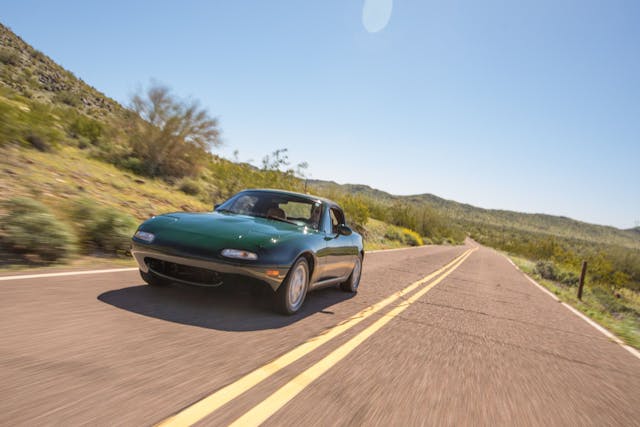
Most called-about vehicle: 1989–1997 Mazda Miata
Highest share of calls: 1988-1994 Nissan Silvia S13
To the extent that Gen-Z represents the exception here—the only generation that quotes a modern Japanese car more than any other—it also proves the rule. Because the car happens to be none other than the first-generation Miata, a modern Japanese car performing a spot-on impression of an older British roadster.
The vehicles Gen-Z quotes more than other generations is without a doubt the most eclectic grouping here. More so than for Millennials, the list seems to represent genuine interest from this age group rather than just apathy from older collectors. Note, for instance, that the Miata makes the cut here, as well. Dealers and auction companies who wish to be relevant a decade or two from now might start beefing up on their knowledge of the JDM heroes on this list. That said, they also should stay current on Corvettes and Mustangs because—you guessed it—the youngest set of collectors also loves those.
Check out the Hagerty Media homepage so you don’t miss a single story, or better yet, bookmark us.
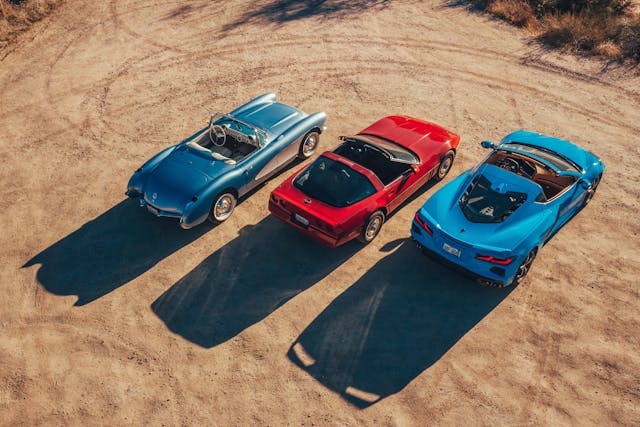


There’s nothing like taking the side curtains off and putting the bonnet down on a ‘58 Tr3A. Especially when this baby boomer had his first ride in it at 5 years old.
Boomers here, North Colorado are all about the late 60s- 70 muscle cars. Machs, Boss, Z28, Hemis, W-30s, LS6, HO, Judge, Stage 1, Machines, Talladega, Daytona, GTAs, GTX, GT, XR7, SS, TA, Six Paks, Dual Quads, so so many more, and please add more!
Born ’59. Dad worked for GM his entire working life (Delco Remy plant, Anderson IN). Dad liked full sized SS Impalas, I’m a GTO guy. My latest isn’t even a Pontiac, it’s an Australian made Holden 40th Anniversary TorRed over black with a Tremec 6spd crunch box sporting a B&M Ripshifter, CenterForce dual disc clutch, lightweight flywheel, and aftermarket 408ci LS engine. Still, a GTO according to Bob Lutz- who would know better? It gets more attention than my ’66 4bbl/4spd in Honduras maroon- lots of those around, many fake or “clones”. Can count on my fingers the Holden GTOs in my region, know all the owners, as well as the G8 & later SS Chevy guys. No love from your peeps? Maybe they bought into the “fat Cavalier” thing promoted by the automotive press at the time. But it’s a very capable car, and the 3700+ pound weight really plants it at 145mph+ (don’t ask how I know this). Not a drag racer, but a superb GT.
Statistics tell the story !…I was somewhat surprised about some of the information.
Born in 1938,.. my interest are street rods. I have 5 1932 Fords, a 1934 Ford a 1923 Ford roadster and a 2986 Silverado. Keep up the good work!
Why don’t you do some stats on what cars that Hagerty Insures?
I am a 1956 boomer . I have no brand loyalty . But I love them all . At 14 when in high school I was either working at McDonalds or working at a used car lot in North Kansas City . My dad bought and sold used cars on the side . He was good friends with the owner of the car lot . We always had something for sale at home and at the car lot . We went to new car dealerships and bought off of the back row . I drove more tired muscle cars back to N.K.C. than I can remember . You talk about a perfect job to keep a teenager out of trouble . Other than the part of driving without a license . We moved to rural Missouri the month in 1974 that the national speed limit dropped to 55 mph . I knew Washington was off the rails .
Right on… I was out in Mission and OvPk.. To me, there was NOTHING like upper Troost with all the car lots full of British (and a few other) sports cars. NKC was however, the place to find a used vehicle on a low budget… then go park in SMAKS or SIDNEY’s in the Plaza
I’m 72 so an early boomer. I love tri-five Chevys, Pontiacs from ’55 to 67, most other American muscle cars made before ’68. I dislike anything after ”68 when the DOT and EPA started to create regulations that negatively affected performance, weight and cool looks of that vintage of automobile. I gradually migrated to Porsche starting with the 356s and then the 911s and then the 930 Turbos. I love all Porsches but prefer air-cooled.
My generation which is the top I am surprised. Here in the Phoenix, AZ area, there are more 1932 t0 1948 Ford coupes and High Boys and fat fenders than anything else it seems. I drive a 1967 Camaro SSRS with plans for an all steel 33 Ford 5-window full fender in the near future. We have produced car shows for 23 years and we don’t see many hot rodds below 1932.
I’m on a tirade today, where have my comments gone? The new comment setup sucks.
Hagerty only wants cheerleading for its daily popularity contest. They’re focus is writing evermore policies.
Their new comment setup doesn’t even allow you to edit typos, per mine above. Hagerty’s interest is in gauging the market to help them determine stated values on policies. Now and then they include an interesting historical piece on a novel car, but it’s cheaper for them to run press releases and auction hype, FordChevyFordChevyFordChevy, going for the mainstream that imagines itself serious buffs.
Third gen F-bodies not peaking anyone’s interest apparently. Good. Keep my prices down and more for me to choose from.
Hire a statistician…the lack of any MOPAR is astonishing. Every young millennial had a Viper poster on the wall 🙂
yeah – I was floored by no mopar – that was / is what this gen x’er wants (still)
Where is Jeep? They are very popular in Pennsylvania
Yeah! Have to agree with the Mopar guys! Love most all the North American big 3 makes & models incld AMC; but my faves include 1968-1971 Dodge Challenger, Charger & Plymouth ‘Cuda.
As a late Boomer and the owner of a ’64 1/2 Mustang convertible modified with built 289, 5 speed and disc brake upgrades I feel pretty good about being able to find it a good home when I need to pass it along years from now.
The good old days cars of 60’s ans 70’s would never be repeated, I am glad that I made the most of them when I was young